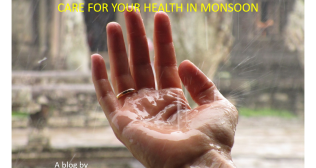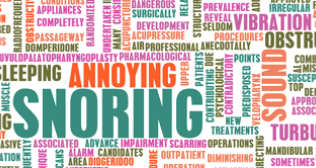
Understanding Epistaxis: Causes, Treatment, and Prevention Strategies
Bleeding from the nose is commonly referred to as epistaxis and is relatively frequent with every person experiencing it one time in his/her life. Despite being a common occurrence, nosebleeds can be quite distressing; occasionally, they portend certain diseases.
Causes of Epistaxis
Nosebleeds can be categorized into two main types: afore and behind. Anterior nasal bleeding occurs in the anterior part of the nasal septum where there is a rich blood supply. These are the frequently occurring and often, less serious forms of skin diseases. Bleeding may occur from a region deeper in the nasal cavity and is termed as Posterior epistaxis and these cases are few, but normally more dangerous.
Common Causes
Dry Air: Another big contributor to episodes of nose bleeding, especially during winter is, dry air. Heating systems also have an effect of lowering the humidity in homes hence leading to drying up of the nasal membranes and easy bleeding.
Nasal Irritation: Stimuli for example cigarette smoke, chemicals, and some odors diminish the ability of the epithelial lining in the nasal cavity to withstand blood loss.
Trauma: Everyone injures the nose, by blowing it too hard or even picking it, and is bound to cause a rupture of blood vessels thus resulting in a bleeding nose.
Medications: Drugs include blood-thinning medications (anticoagulants), anti-inflammatory drugs, and nasal sprays – all of which can cause increased bleeding by affecting the blood vessels, or the nasal passages which may be dehydrated.
Underlying Health Conditions: Various diseases including high blood pressure, coagulation disorders, and specific kinds of cancer may cause frequent or excessive nose bleedings.
Treatment
Below are the management measures that the users will have to take to ensure that they stop the bleeding.
Stay Calm: Panic is also likely to raise the blood pressure which in turn could worsen the bleeding of the nose. The person needs to take deep breaths and calm down.
Positioning: People have to keep the back straight and upper body slightly leaning forward. This helps to avoid the backwash of blood in the throat and possible nausea or choking.
Pinch the Nostrils: Using the thumb and the index finger gently pull the skin on the lower part of the nose where the bridge is not very hard. Maintain the position for 10-15 minutes and breathe through the mouth.
Cold Compress: The application of a cold pack or an ice pack on the bridge of the nose can be effective in the shrinking of blood vessels thus discouraging bleeding.
Continuous nose bleeds for more than half an hour, should be looked into by a doctor. Medical treatments may include:
Cauterization: This is where one applies the use of a chemical or electrical device to close the affected blood vessels.
Nasal Packing: A rule of thumb is to use gauze or a nasal sponge to apply pressure on the blood vessels that are affected hence halting the bleeding.
Medication Adjustment: If medications are the cause, then the doctor will possibly prescribe a smaller dosing schedule or a different medication entirely.
Prevention
In essence, eradicating causes and implementing good hygienic practices that can contribute to the nose’s health can help reduce the occurrence of bleeding.
Maintain Humidity: By using a humidifier in the house especially when the weather is dry, will help the nasal passage to remain moist.
Nasal Lubrication: A little amount of saline nasal spray or a layer of petroleum jelly inside the nostril level will help a lot in this case.
Avoid Irritants: Reducing exposure to smoke, chemical fumes, and any other irritants
Protective Gear: People who engage in contact sports or vigorously active jobs exposing their face to possible injury to the nose should protect it upon advice from a doctor or a specialist.
Regular Check-ups: People with conditions like high blood pressure or a blood clotting disorder, must do necessary health check-ups. They assist in controlling the two conditions and minimize the occurrence of nose bleedings.
Despite the fact that epistaxis is normal and often not significant, discussion of its causes, available measures, and preventive tendencies assist in controlling the situation. To minimize the cases of nosebleeds and enhance the health of nasal passages, one should maintain cleanliness, avoid exposure to irritating substances, and seek a doctor’s attention if the problem persists.
Popular Searches :
Hospitals: Cancer Hospital in Delhi | Best Heart Hospital in Delhi | Hospital in Amritsar | Hospital in Ludhiana | Hospitals in Mohali | Hospital in Faridabad | Hospitals in Gurgaon | Best Hospital in Jaipur | Hospitals in Greater Noida | Hospitals in Noida | Best Kidney Hospital in Kolkata | Best Hospital in Kolkata | Hospitals in Rajajinagar Bangalore | Hospitals in Richmond Road Bangalore | Hospitals in Nagarbhavi Bangalore | Hospital in Kalyan West | Hospitals in Mulund | Best Hospital in India | | Cardiology Hospital in India | Best Cancer Hospital in India | Best Cardiology Hospital in India | Best Oncology Hospital In India | Best Cancer Hospital in Delhi | Best Liver Transplant Hospital in India
Doctors: Dr. Rana Patir | Dr. Rajesh Benny | Dr. Rahul Bhargava | Dr. Jayant Arora | Dr. Anoop Misra | Dr. Manu Tiwari | Dr. Praveer Agarwal | Dr. Arup Ratan Dutta | Dr. Meenakshi Ahuja | Dr. Anoop Jhurani | Dr. Shivaji Basu | Dr. Subhash Jangid | Dr. Atul Mathur | Dr. Gurinder Bedi | Dr. Monika Wadhawan | Dr. Debasis Datta | Dr. Shrinivas Narayan | Dr. Praveen Gupta | Dr. Nitin Jha | Dr. Raghu Nagaraj | Dr. Ashok Seth | Dr. Sandeep Vaishya | Dr. Atul Mishra | Dr. Z S Meharwal | Dr. Ajay Bhalla | Dr. Atul Kumar Mittal | Dr. Arvind Kumar Khurana | Dr. Narayan Hulse | Dr. Samir Parikh | Dr. Amit Javed | Dr. Narayan Banerjee | Dr. Bimlesh Dhar Pandey | Dr. Arghya Chattopadhyay | Dr. G.R. Vijay Kumar | Dr Ashok Gupta | Dr. Gourdas Choudhuri | Dr. Sushrut Singh | Dr. N.C. Krishnamani | Dr. Atampreet Singh | Dr. Vivek Jawali | Dr. Sanjeev Gulati | Dr. Amite Pankaj Aggarwal | Dr. Ajay Kaul | Dr. Sunita Varma | Dr. Manoj Kumar Goel | Dr. R Muralidharan | Dr. Sushmita Roychowdhury | Dr. T.S. MAHANT | Dr. UDIPTA RAY | Dr. Aparna Jaswal | Dr. Ravul Jindal | Dr. Savyasachi Saxena | Dr. Ajay Kumar Kriplani | Dr. Nitesh Rohatgi | Dr. Anupam Jindal |
Specialties: Heart Lung Transplant | Orthopedic | Cardiology Interventional | Obstetrics & Gynaecology | Onco Radiation | Neurosurgery | Interventional Cardiology | Gastroenterologist in Jaipur | Neuro Physician | Gynecologist in Kolkata | Best Neurologist in India | Liver Transfer



















